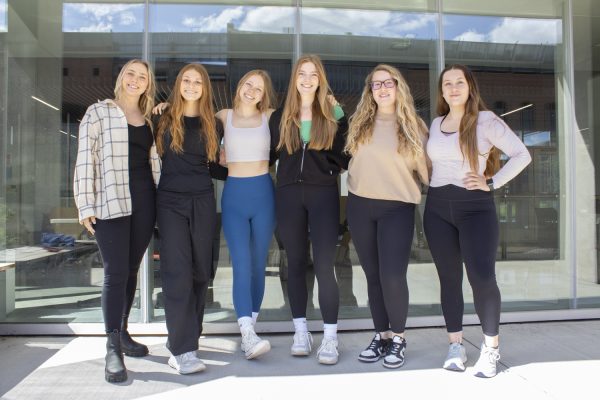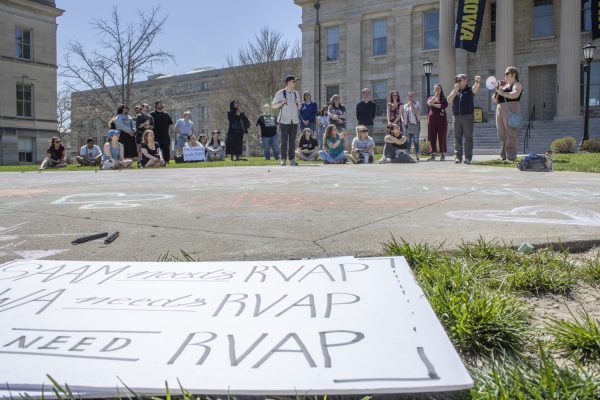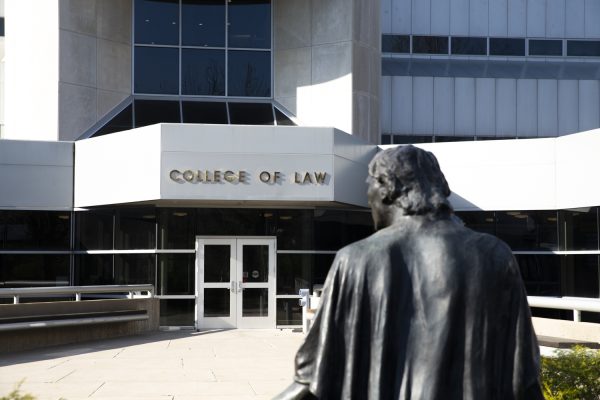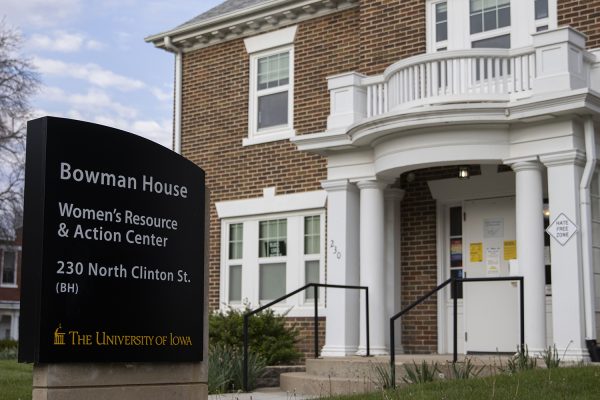UI changes residency rules
UI students applying for residency must work 30 hours each week while enrolled part-time over the course of 12 months to gain residency in the state of Iowa.
The Old Capitol is shown on Monday, July 25, 2016.
February 8, 2017
It may become more difficult to strike a work-life balance for University of Iowa students after the UI altered its requirements for gaining residency.
Students planning to apply for residency in Iowa must work at least 1,560 hours annually, which equates to 30 hours per week, on average. By IRS guidelines, this counts as full-time employment.
According to the UI admissions website, 45.5 percent of UI students were classified as nonresidents in fall 2015.
“As a public university reliant on state funding, we must regularly review university policies and practices to make sure they are aligned with the Iowa Code and administrative rules and regulations,” said Jeneane Beck, the UI assistant vice president for External Relations, in a statement emailed to campus communicators and shared governance leaders. “… Our process for determining if a person has moved to Iowa to establish a domicile in the state has been altered to better reflect the intent of the rules outlined by the existing policy that governs this process.”
Currently enrolled students who have started the process of gaining residency and are part-time students will apply for residency under the old guidelines, said UI Registrar Larry Lockwood. The new requirements will be effective May 1.
Considering the Iowa Legislature’s vote to cut $8 million from the UI’s budget, Lockwood said other states facing funding issues could re-evaluate their own residency guidelines. He said he could see this happening particularly in states with a simpler process of gaining residency, where the student only has to register to vote and get a driver’s license to be classified as a resident for tuition purposes.
“I think there will be more states that start looking at their residency rules, too,” he said. “Each state now has a one-year wait for tuition purposes.” This wait means students pay nonresident tuition in the year they undergo the residency application process.
UI student Jordan Rand, who is from Chicago, gained residency after coming to the university as a transfer student. Rand plays club soccer and was also on the team while trying to gain residency, and he said work sometimes made playing soccer on the team difficult.
“I feel like the more you work, it’s kind of hard to get involved with other things,” he said.
Rand said he qualified for the Advantage Iowa scholarship, but because he came in as a transfer student and could not get the scholarship, gaining residency was a better option for him.
Students who enroll at the UI as nonresidents and later qualify as residents for tuition purposes are not eligible for resident scholarships, Beck said.
“Once you get the in-state [tuition], it’s significantly less to go here,” Rand said. “Even though you’re kind of a little bit behind … you’re not paying as much, and that’s less scholarship money that they have to give out.”
Lockwood said the change to requirements has the potential to lead to a decline in nonresident student enrollment at the UI.
“Some students might back out just because of that and go elsewhere,” he said.
For students who decide gaining residency is the right choice for them, Diane Hauser, the director of academic advising in the College of Liberal Arts & Sciences, said she suggests working closely with academic advisers and financial literacy specialists. She also recommends students working 30 hours each week enroll in no more than six semester hours of courses.
“We don’t want you to have huge bills after you graduate,” she said. “We want you to have the right kinds of course loads so that you’re doing well during the semester and can meet your academic and your career goals, and it’s important to be able to have options available and the financial piece of it is really tough.”















